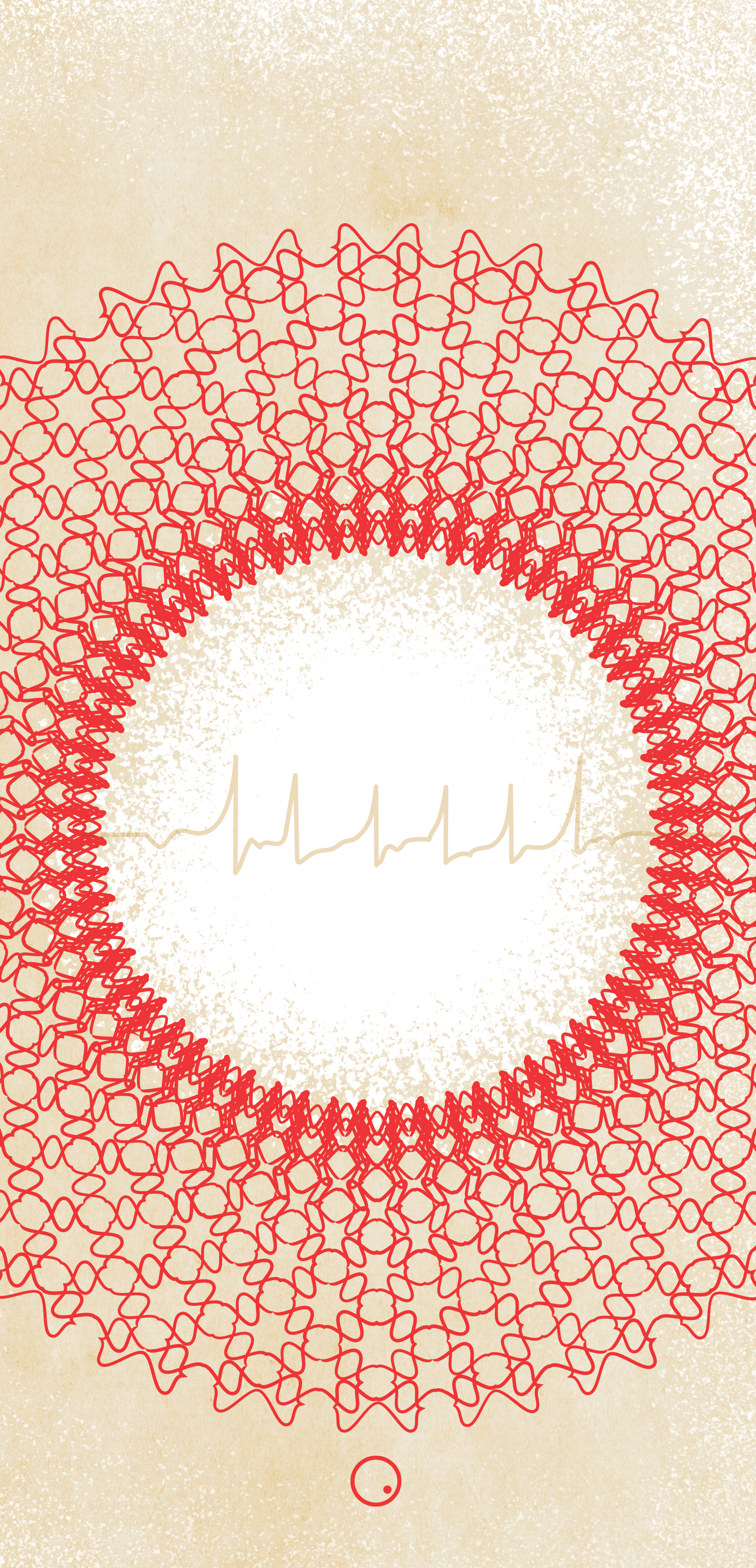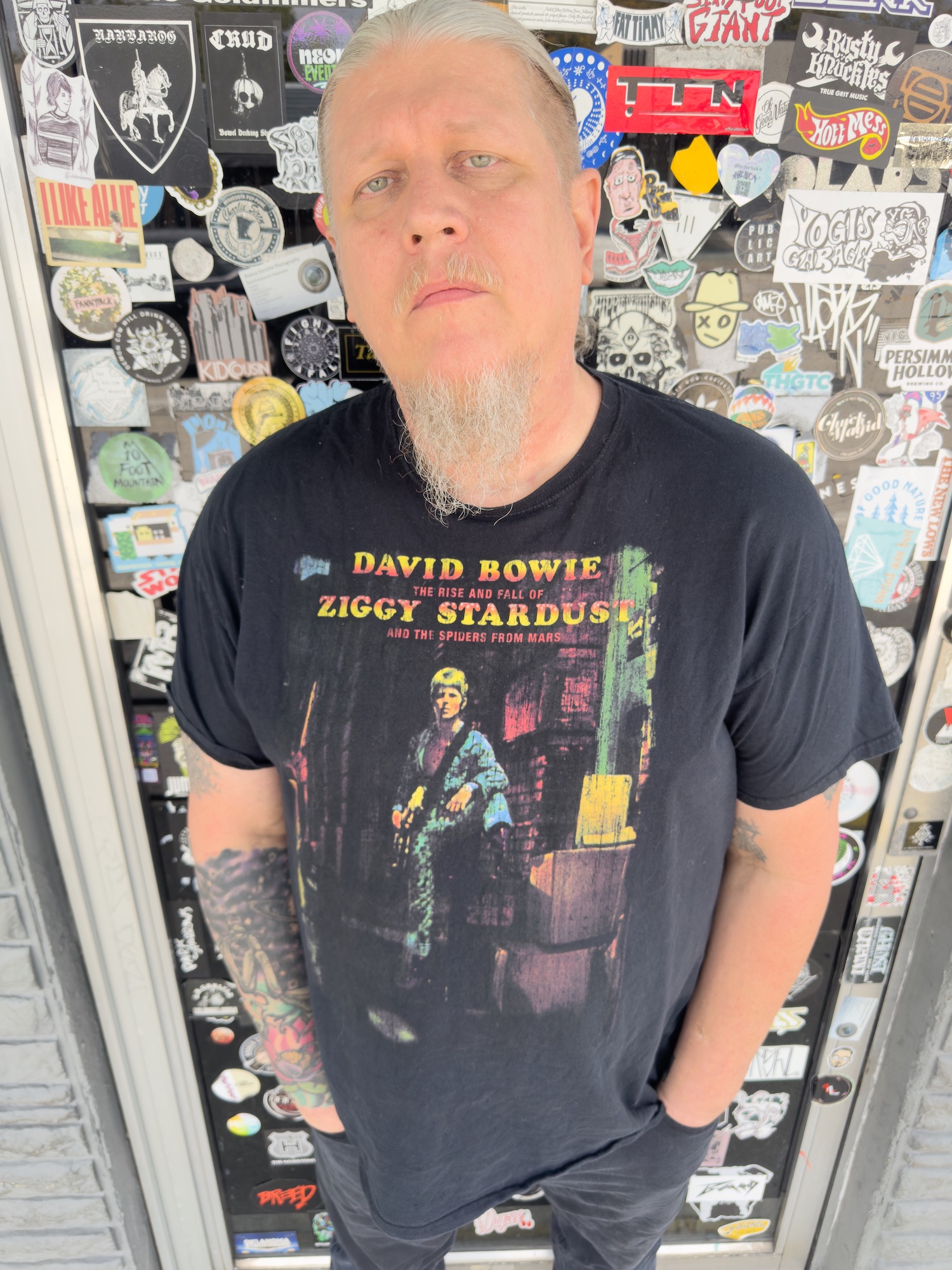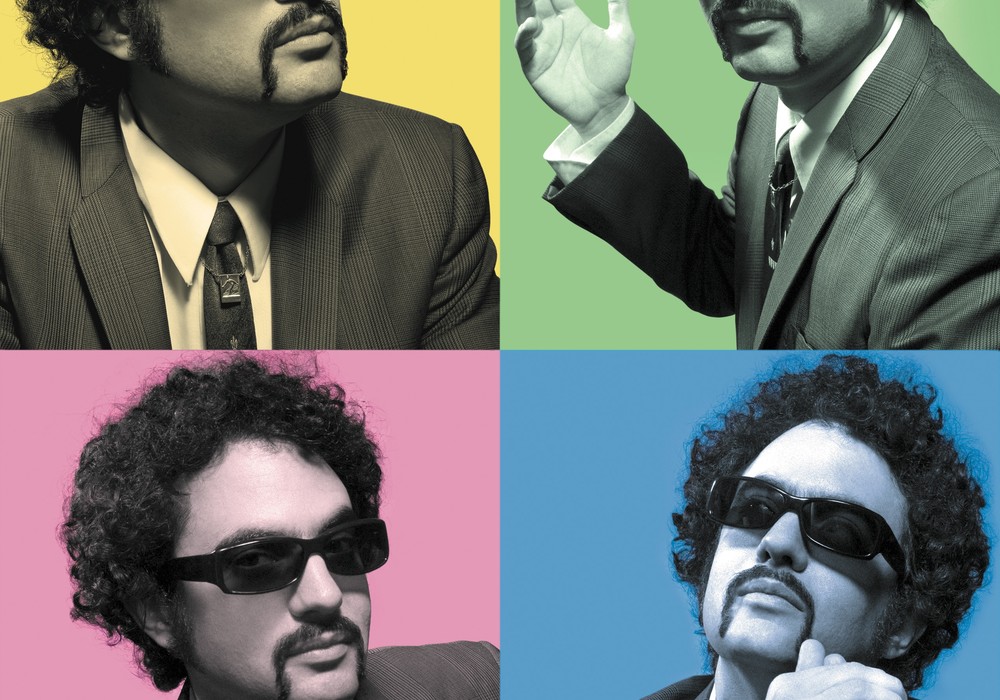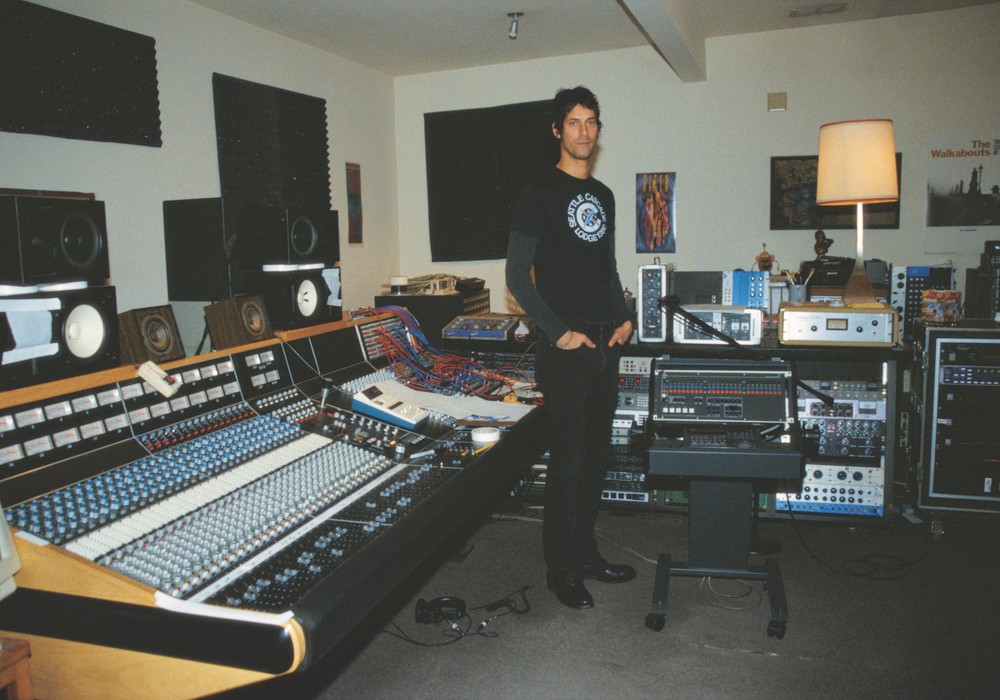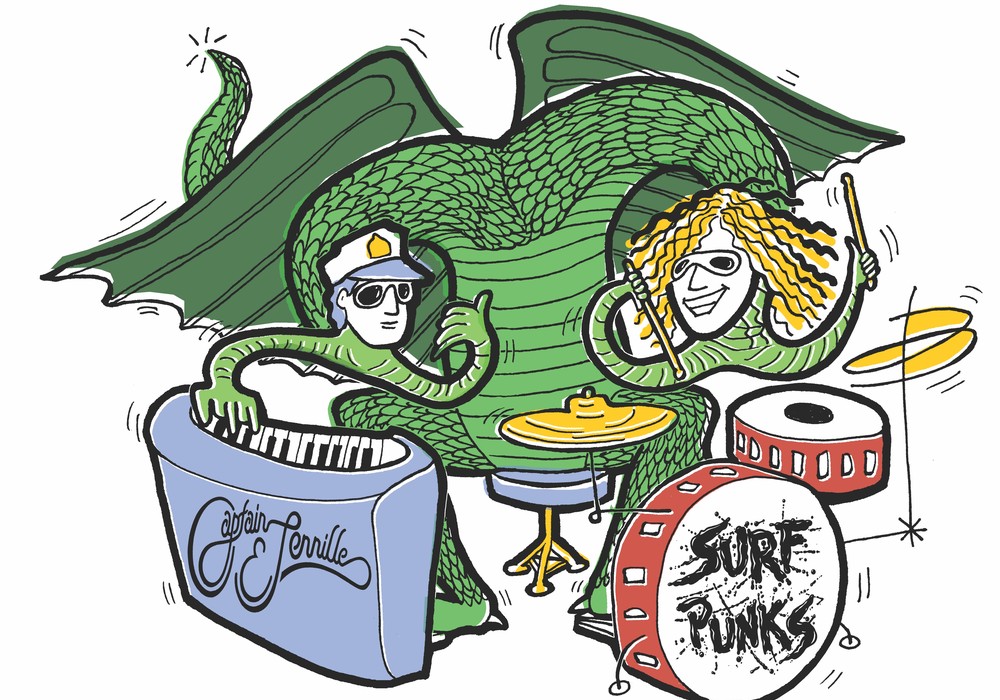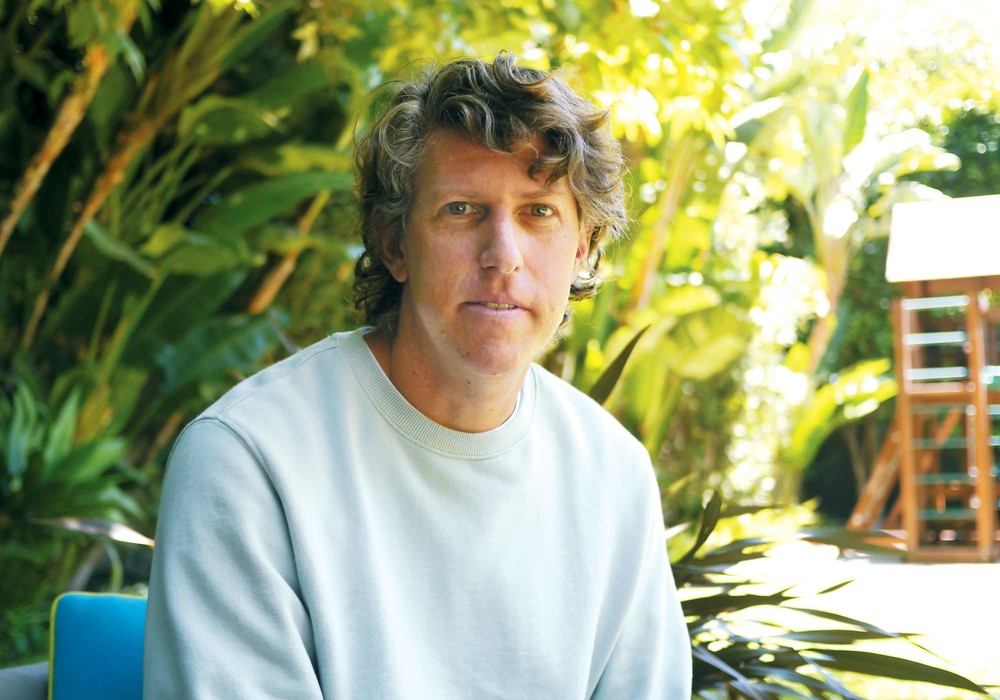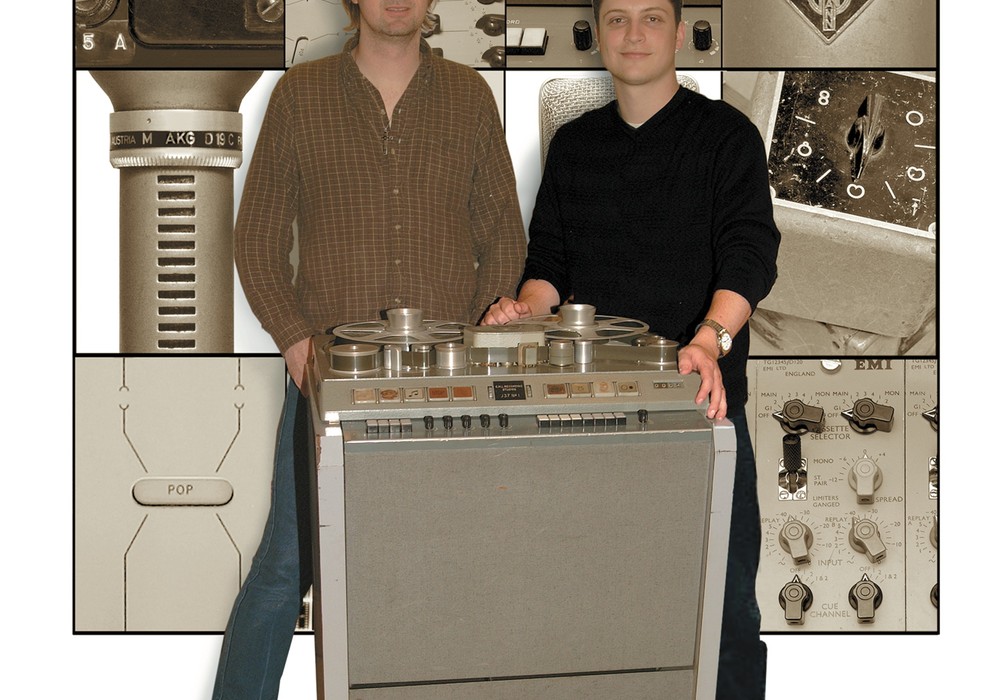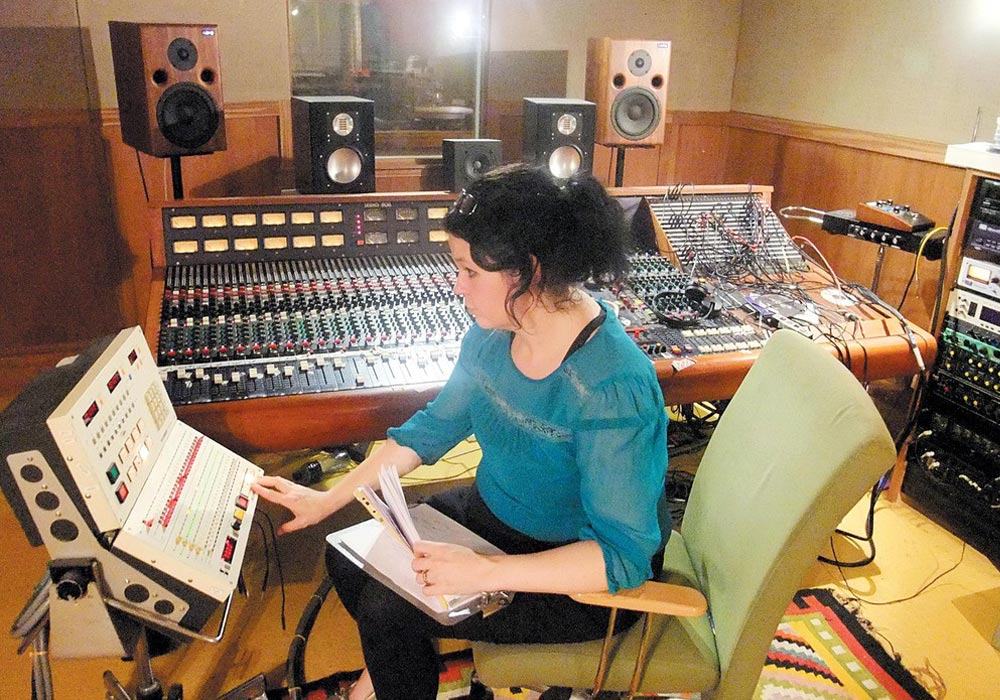Jarrett Pritchard has seen some shit. After coming up in Florida’s extreme music scene, he slugged it out as an educator, live sound engineer, and re-recording mixer for television before getting called back into action for loud and heavy bands. The likes of 1349, Exhumed, and Gruesome have invoked his ears and technical mind on the road and in the studio, and his work isn’t simply your standard clear-as-a-whistle metal production job. When a band like Goatwhore comes knocking, a producer needs to both capture their street-level grit and grime while simultaneously ensuring that not a single riff gets buried in the dirt. And, like any good producer, Jarrett Pritchard isn’t afraid to do what it takes to get his artists to perform to the day’s best. Even if that means busting out the puke bucket.
Was 1995 the first incarnation of New Constellation Studios?
No. My dad was an acoustics engineer for NASA for almost 30 years. I had recording equipment around my house my entire life. [In 1995], I called him up and I said, “I'm never going back to work again. Work is for schmucks.” My dad said, “Well, why don't you engineer?” My father and I, almost immediately, decided we would start a studio together in 1995. My first was called Anacron Studios, and it was in our house. It was the time of ADATs and [Yamaha] O2R mixers. I believe it was one of the first O2Rs that came to the East Coast. We had an early Cakewalk computer with a WaveCenter card and optical in and out. I asked a lot of questions – learning recording and learning automation. I was reading a lot; anything that I could get my hands on. I was solving a lot of my own problems, but my father was very much a scientist. The notion of crushing a room mic with a [Urei] 1176, he would say, “Why are you doing that? That's crazy. Why would you do that?” I was learning from my dad, who's very, very technical and clinical about engineering, while I'm being inspired by these rock engineers that do it way differently. “I'm going to put distortion on that snare.” He would ask, “What in the world are you doing?” But we had a good time with it, and I learned a ton from him.
You started getting a lot more engineer and producer credits on metal albums 10 to 15 years ago. What was going on between 1995 and 2007?
The first five years were hard. I was a live engineer, and I was running a studio, mostly local bands in Virginia. Live-wise, there was a lot of violence where I was. I had twins in 1998. I had kids and I saw everything, from riot squads at a DJ show to gunfire. In 2000, I retired from doing live sound and I went and got a job as a sound editor. I was a re-recording mixer for a lot of programming for Discovery, and FBI Files, New Detectives, Daring Capers, Diagnosis Unknown, The Prosecutors, and Interpol for National Geographic. In 2005, I got a telephone call to teach at one of the audio schools. It definitely made me better, because I had to articulate what I do. That's not necessarily something that you consider. But when you have to show a student, “This is a kick drum, that's 1 kHz. Here's what happens inside the shell. It sounds like crap. Get rid of that. Here is the cardboard: 200 to 400 Hz.” Being able to articulate it in that way that equals “this noise is this number.” I did it for four years. Those that can't do, teach. I don't know how true it is, but I decided that I had talked enough. I wanted to get back to work. I had become a better engineer. I played music. I took care of my kids, and once my kids were old enough to understand what was going on, I started going back to work and I didn't want to talk about it anymore. I wanted to do it and prove to myself that I still knew what I was doing. The return to metal in 2008 is what brought me out of retirement. Somebody asked me to go out with the Norwegian black metal band 1349, and we were opening for Carcass. At first, I said, "I don’t want anything to do with any church-burning Norwegians.” My friend that was asking was like, “No, dude, they’re not like that. Not like that at all.” Now, those Norwegian guys are still some of my closest friends and my favorite clients. I’ve done a few records for them over the years and continue to work alongside them. It was through them that I got involved with Tom Warrior [Thomas Gabriel Fischer] and his bands Triptykon, Celtic Frost, and Triumph of Death for the last 14 years, which resulted in the live Triumph of Death album [Resurrection of the Flesh] that we tracked in spring of 2023. Somewhere in there, I got involved in playing in my own band again, Pulchra Morte. We’ve released two albums and a single, and we continue to keep recording and playing.
For extreme metal albums, I feel that you have to be making big decisions at such early stages for things to work themselves out by the end: Anything from drum tuning to what samples to use on the kick drums. If you're going to sample replace, tightness of rhythm guitars, making sure the bass is locked in the way it should be – it's so many things to get right early on.
We have all this technology, where everybody can do things at home, and do them pretty well. But what makes us, the engineers, important is that we watchdog the tuning. We have a different perspective on the performance that maybe is hard to hear when playing it, because they don't have an outside person looking in. It's also hard to know what the big picture is when they're focused on playing parts and there's a whole big scope of this thing that has to be presented later on. There are a lot of decisions being made that affect the entire thing or we're in trouble later. If I put two microphones on a cabinet: “Did you test them? Did you phase align them? Did you commit to them before without doing that?” Guess what? If you do, it's not going to go well. “Are your drum mics set up in a way that's [phase] coherent? Are you controlling the bleed? Are you looking at the phase relationships, not just between top and bottom snare but between everything? Let alone tuning and knowing what a decent drum sounds like. Is it the right sound for the song?” Those decisions are extremely important. You also have to make it enjoyable and fun to work with the band. They have to feel comfortable. The pressure of all that can't take you out of being an ally. Sometimes, traveling, every piece of gear in the room's not working and I'm trying to figure out, “How am I going to pull this record off?” It's important to keep your head up and keep everybody else's spirits up while figuring the problems out.
There were several Gruesome releases in a four-year period. In the middle of that was also Exhumed’s Death Revenge.
I did Savage Land in my mix room at my house. I had a house that had a mix room – treated and everything – that I had built. My good friend and business partner in New Constellation, Jeremy Miller, is a brilliant engineer and system tech for a lot of really big people. He moved into this house, and half of this house is a recording studio. [Drummer] Tony Laureano called me up and said, “I'm working on this project with some people. I need to get the drums done. I haven't nailed it down.” I was like, "Put the drums in the van and bring them up here. The gear is sitting in the room. I could hook it up really quick and record you here.” Immediately, my good friends in Brutality, who I now play for, heard that I had a recording studio, which wasn't exactly accurate. It was just a bunch of gear in a room that looked like a recording studio. “Oh no! We've got to track our record with Jarrett.” Then Sea of Ignorance comes, then Gruesome calls me and was like, “Jarrett, you have a studio now. We're going to come record Dimensions of Horror with you.” Then, because I had done Gruesome, that's when Matt [Harvey] said, “Hey, do you want to do Death Revenge?” Those first two years were when New Constellation really got moving.
The reason I brought up Death Revenge is because it's a bizarre metal record. It’s a mix of straight up death metal but also these cinematic pieces. What was the vision for that album?
All the symphonic stuff was all Matt Harvey and his inspiration. What he created got flown in to me. I mostly had the band aspect and then tracks got sent to me remotely. The bass, the keys, the symphonic stuff, and all the other vocals got sent to me from elsewhere. We did all the drums with [Mike] Hamilton, who's a fantastic drummer. Matt's guitars and vocals were done here. Then other tracks started to come in, we assembled them and put them together, and there you go. It's funny, because Matt and Mike are so proficient. I rented a kit for Mike, and we got to it. I remember joking every time he would do a take that I liked, I’d say, “Alright, Hamilton.” A Fast Times at Ridgemont High type of thing. [laughs] The record itself was ultimately just like putting it together in the mastering stage and getting it to flow. That was a lot of fun to do, and I was really fascinated with the story behind the record.
With Goatwhore, you actively said, “We're going to go out to Earth Analog. We’re going to go someplace out of their comfort zone.” How did they respond to the idea of going to a destination studio and isolating themselves?
This is one of the reasons why I try to make records as far away from everything as possible. It's the reason that I suggested Earth Analog for [Goatwhore’s] Vengeful Ascension. A studio in the country. Bands and activities can be the opposite of good for a record. Exhumed were tracking here, and it was the night before they had to fly out. We had a few things we had left to do. [Rob] Barrett is a good friend of all of ours, but Barrett has a nose for trouble. He invited Matt and Mike out, they went out drinking, and they got shit-housed. The next day, when Matt was trying to sing, he had a garbage can in the booth so he could puke between takes. They were so fucking hungover. And yeah, it was all Barrett's fault. [laughs] I think [Goatwhore] trusted me. I had been their live guy in the van with them for quite a while. I liked Earth Analog because I liked the drum sound, and I'm a huge fan of Hum and Matt Talbott [of Hum] owns the studio. They have some good gear. I wanted to do the record to tape, I wanted us to be in the same place and not leave, and I wanted us to be away from anything that would be distracting. They said, “Yeah, let's do that. We'll drive up, we'll do the record, and we'll have this amount of time.” We looked at a bunch of different options, and I took an option that got us a large amount of time within what we needed to do. It was great. My good friend James Harvey played bass on that one, and it was the last record he played on for Goatwhore. Rest in peace. He flew out from California, walked in, and did it like he always did because he was a fantastic player. I set Ben [Falgoust, vocals] up in the big room and put gobos around him instead of the booth. I don't like booths all that much on vocals. The glass reflection drives me insane. I always want to put my vocalists in a bigger space and put gobos around them. I went and spent the first three days with Chris Common, who I chose to mix it because I loved what he did with Helms Alee. I sat with him for three days and it's one of those things – the way we've always done Goatwhore records – where we bring the faders up and it is what it is, and it should be correct. You shouldn't have to do much to it.
How would you describe the hunt for Sammy Duet’s guitar tone?
We go through every pedal, every pickup, every guitar, every speaker, every head, and we always come back to the same thing we always do. Which one of his speakers, up close, under the mic, sounds the most what it sounds like when he's standing six feet away from the cabinet? Typically, it's a dynamic with a ribbon mic lined up – capsules aligned. I think it was an SE Electronics Voodoo [VR2], the active ribbon, and a [Sennheiser MD]421 plus a [AKG C]414 on the cabinet, and I'll put the pads on. He hates grimy top end, like hiss and sizzle. Find the right place to point the microphone, where the voice coils are not sending out all that trash that we're going to roll off anyway. But when he gets it, and when we get the sound and he's happy, then everything's pretty easy from there. On Angels, the last one, we worked on it for a week before we got there. It’s not that we don't get it on the first day. We just want to try all the options. We're trying [Marshall JCM] 800s with power tube chokes inserted into the back of them, and various other things, but we ended up with his Randall amps as usual. We took apart every single speaker cabinet he had, and I ended up going with one of his. We had a Warlock cabinet flown in that had an X pattern with Weber Gray Wolves and Weber Silver Wolves. So, it was that and a Randall cabinet, but we went through every option. It took many days and then we found the one that worked. He's one of those guys where he's not going to rely on it being fixed in post. He wants it right now, and I agree with him 100 percent. It's so much easier to get it right before we push record.
When you're spending a whole week trying to hunt down an extreme metal guitar tone, does it get difficult to see the forest from the trees?
Very much so. There are fundamental things: I will leave myself breadcrumbs to go back to zero. Whether it's a tone that they had before that they liked, a reference track, or a piece of music that I like. To be clear, I'm usually doing other things while I'm doing this. In that case, I had the drums set up the whole time. I would work in the morning doing drums, and then I'd spend the next part of the day going through and working with guitar sounds. Then I might spend the third part of the day cleaning up, comping, or whatever had to be done. I’m constantly working. It’s not like we're working on one thing all the time. But yeah, the forests for the trees. I do a lot of things to snap myself out of it and to get my bearings back, because after I listen to ten microphones on the same guitar cabinet, do I remember what the first one sounded like? I have things that I use as breadcrumbs to get myself out of the forest.
One could argue that you have just as much experience doing live mixing as you do studio work at this point. What do you think is a difference in temperament between those two gigs that one needs to have? What kind of personality do you need to bring to a live environment that you shouldn't bring to the studio, or vice versa?
With the studio, the important thing is – within reason – you want to be positive. You want to be inspired. You want to be into what you're doing. You want the people that you're encountering to feel like you care about what's happening. In some of my earliest experiences recording, the engineer did not give a shit about me, my band, or what walked out of the room. That's a horrible feeling! I want them to feel like I'm with them. That my goal is their goal. That is extremely important in the studio. I think that confidence is big, in both realms. Sometimes you have to save people from themselves. They walk in here and they didn't practice? I’m going to ride their asses. If they're phoning it in and I walk in the drum booth, I'll look them dead in the face and say, “Is that the snare hit you want to remember for the rest of your career? You want to hear that on the record? Do you mean it?” In the studio, the feeling is everything. It is completely conveyed through the recording. Intention is everything. Anybody that's ever skateboarded knows that I am telling the truth. If you drop in on a halfpipe without intention, you're going to bust your ass. Now, when it comes to live mixing, I'm working with other people. Oftentimes I'm walking into someone else's house. I have to be respectful. I need to be cool, as much as I can be. I need to be flexible as much as I can be. And I also need to make sure that the band is on stage thinking about their performance and not thinking about me, so I have my shit together. In both instances, the thing that's similar is that it's important to have a plan and be confident in what we're doing. Because you're going to make people that you're working with feel more comfortable about what you're bringing to the table. When someone's on the stage playing a show and I'm mixing out front, I don't want them thinking about what I'm doing. I want them to know that I am annihilating the room. I want them to know that they're crushing it and that whatever small part I play in that, I’m doing my job. We’re going to smash this thing, and it's a group effort. 
